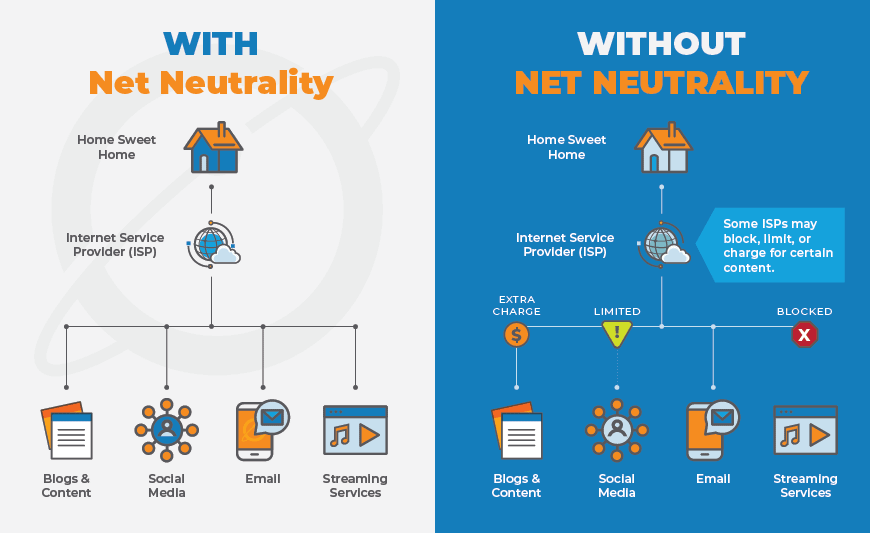In net neutrality, internet providers or governments ensure that all content on their networks is accessible regardless of platform, user, app, device, or information. Or as defined by NAMLE (National Association for Media Literacy Education), “Access is how, when, where, and how often people have access to the tools, technology, and digital skills necessary to thrive.”
This graphic from EarthLink depicts net neutrality’s purpose perfectly.

Because net neutrality allows for consumers to access all online tools with no restriction, they can receive all types of information from any platform. This unbiased approach to the internet is one consumers love because of the curiosity and fascination it provokes. The image above also suggests that with no net neutrality, some ISPs may block, charge, or limit certain content, which is something consumers never want to hear.
According to NAMLE’s five basic media literacy principles: access, analyze, evaluate, create, act, limiting access to media platforms contradicts what media literacy aims to achieve. By combining these principles with the wide range of internet content net neutrality provides, a more educated and information-cynical society can be formed. This, in turn, can lead to a better understanding of media and its effects, as well as the ability to make informed decisions about media consumption.
In order for a democracy to function effectively, citizens need access to information from a variety of viewpoints and sources, as well as the opportunity to exchange ideas with others. This is something net neutrality encourages; the freedom of speech. It is the 21st century, most of our discourse and speech is via the internet. Net neutrality guarantees that all speech is treated equally regardless of the content. When it comes to politics especially, it is crucial that people have access to the internet in order to participate in the political process and to hear other people’s opinions.
In short, net neutrality aims to create a fair and level playing field that fosters freedom of information on the internet. Ensuring open access to the internet supports free expression and a thriving place for differing ideas. However, net neutrality is a complex issue with reasonable concerns and arguments. As all of us are digital media consumers, we must educate ourselves on how internet regulations could impact innovation, free speech, and access. Through open and thoughtful discussions, regardless of one’s perspectives, we can be advocates for values and outcomes that support the questions and curiosity that comes with media literacy.
Leave a Reply